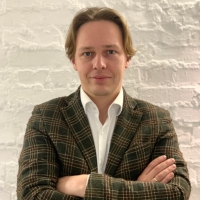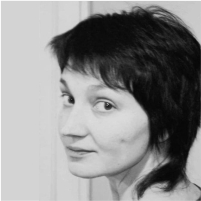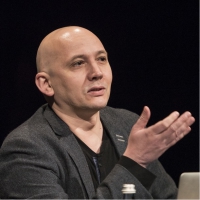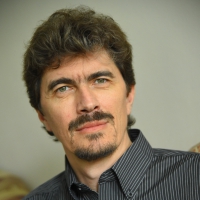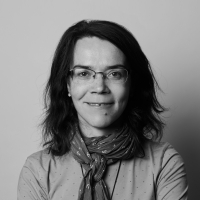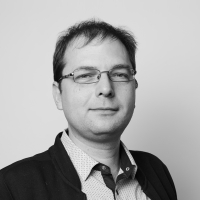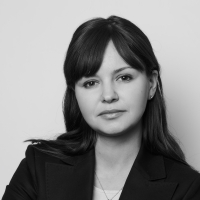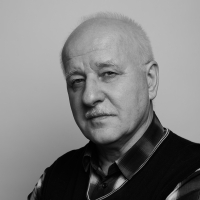
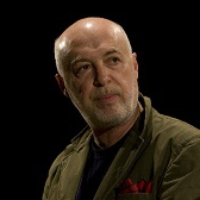
Jurij Alschitz (Germany)
Director, PhD in art history, professor, author of books on theatre pedagogy ("45 questions of one Role", "Training forever!", "The Vertical of the Role", etc.), one of the most well-known and popular theatre teachers who educated thousands of students working around the world.
He graduated from the GITIS – the Russian Academy for Theatre Arts, under Prof. M. Budkevich and Prof. A. Vasilyev. He worked as a director in many theatres of the Soviet Union. He began teaching in 1989 at the theatre "School of Dramatic Art" and at the faculty of directing of the GITIS – the Russian Academy for Theatre Arts.
Since 1992 Jurij Alschitz has been leading projects and teaching at universities and drama schools in Europe, South and North America. In 1994 he founded AKT-ZENT International Theatre Centre in Berlin, where he has been appointed as its permanent director. He founded the international festival for theatre training methods – METHODIKA. In 2011 the project of Jurij Alschitz “The World Theatre Training Library “– (WTTL) was recognised by the International Theatre Institute as one of the most important theatrical explorations of our time. The centre of Jurij Alschitz AKT-ZENT is officially recognized by the Centre for Theatre Research ITI/UNESCO.
Goal:
The online school-laboratory was created for theatre teachers and actors in Russia, separated by thousands of kilometres, but united by a common desire to open new creative opportunities online. The unique project is the first experience of an online school-laboratory conducted by ITI/UNESCO Network for High Education and Performing Art and World Theatre Training Institute AKZENT.
Process:
The laboratory will go beyond the traditional time frame of the Forum and will last for almost 2 months — from June 8 to August 1, 2020. However, it is also possible to participate in the work of the school-laboratory only during the Forum (applicants must notify the organizers of this in the motivational essay).
The laboratory will be held in several stages:
May 10 — June 5: registration and selection of participants. When registering, you must send a motivational essay, based on which the Master will make a decision about the applicant's participation in the laboratory.
June 8 — 14 June: a course of lectures and practical classes, the selection of participants and the formation of a group that will continue training at the laboratory school after the Forum.
June 16 июня — August 1: practical classes with teachers and actors.
Result: the final part of the project provides for an open demonstration of the results of distance education in the form of independently prepared one-man performances, which will be presented as part of the International theatre festival "Nauruz" in June 2021.
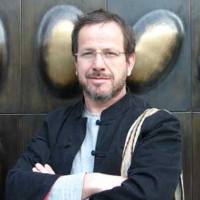
Alejandro Gonzales Puche (Colombia)
Director, teacher. Professor of the Department of Performing Arts at the University of del Valle (Cali, Colombia, 1996-2020). Head of the experimental theatre group "Laboratorio Escénico Univalle".
He graduated from the directing department of GITIS (workshop of B. G. Golubovsky, 1986-1991), master's and doctoral degrees at the University of Valencia (Spain, 2006-2009).
He worked as an actor in the theatre "School of dramatic art in workshop of Anatoly Vasiliev" (1989-1991). He was the head of the National school of dramatic art (Bogota, Colombia; 1994-1996).
Author of performances of world classics and contemporary literature, including "Placido and Vitoriano" Juan del Encina, "Pedro de Urdiales" by M. Cervantes, "The Mighty Magician" and "Life is a dream" by P. Calderon, "Dialogues" of Plato, "Othello" by W. Shakespeare, "Faust" J. W. Goethe, "The Seagull" and "Uncle Vanya" by A. Chekhov, "A Christmas Carol" Charles Dickens, "Jesus" V. Pineda, "Misunderstanding" by A. Camus, "The incredible and sad story about the ingenuous Erendira and her heartless grandmother" G. G. Marquez, "Hopscotch" by H. Cortazar, "The Chernobyl Idiot" by F. Dostoevsky, S. Aleksievich, etc. in theatres of Russia, Colombia, Chile, and China.
With master classes in directing and acting, he participated in theatre festivals and projects in Colombia, Russia, the United States, Brazil, Cyprus, Spain, Bangladesh, Mexico, Venezuela, Peru, etc.
Program:
Experience of staging a play in a virtual theatre: the director's idea and the actor's embodiment. Epistolary genre as a unique basis for online production.
Goal:
Despite the fact that due to circumstances beyond our control, we are separated by many kilometres and do not have the opportunity to come to the rehearsal room and shake hands, we should not give up on creativity, development and improvement of our profession.
Moreover, we can perceive this situation as a call to action, an experiment that opens up new opportunities for theatre in general, directing and acting in particular, and the digital opportunities we have as one of the tools for achieving artistic results.
Can the theatre become virtual? Is it possible to compose and rehearse online? Can the premiere take place online on the Internet: on the screens of the viewer's computer or phone? What effect/impact on the audience can such a performance expect and what ways to achieve the necessary participation in the theatre?
Process:
The group will consist of directors and actors. If you are a director, then to participate in the program, you must send a short description (no more than 1000 characters) of the director's idea for the future online performance along with the application.
As a basis for exploring the new possibilities of the theatre, we will focus on the story "The novel in nine letters" by F. Dostoevsky. Epistolary genre, like no other, is suitable for the first experiments in terms of virtual theatre research.
What is a letter? This is the possibility of interaction at a distance, this is revelation, and detachment, this is the emotional impact inherent in the text, but also the inability to "feel" the recipient's response in real time, and much more. This is very similar to our current situation; these are topics that we will reflect on.
At the same time," The novel in nine letters " by F. Dostoevsky is a fascinating material for the director's analysis and actor's embodiment, which has no history of theatrical productions and offers a completely new look at the classic of world literature.
The rehearsals will be based on the classic method of effective analysis of the play and the role, which, however, will allow you to freely experiment in the new format of digital theatre.
For fruitful work before the start of classes you need to familiarize yourself with the works:
“The novel in nine letters” by F. M. Dostoevsky https://ilibrary.ru/text/19/p.1/index.html
"Introduction to directing" by M. I. Tumanishvili http://www.theatre-library.ru/files/t/tumanishvili/tumanishvili_2692.pdf
Result:
The online performance will be shown in real time on the ZOOM platform (the recording of the performance will be available for viewing on the YouTube channel of the Kamal Theatre).
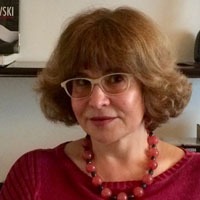
Elena Vasina (Brazil, Russia)
Professor of the department of Russian studies of the Department of Oriental Philology, faculty of philosophy, literature and Humanities, Head of the translation Centre of the faculty of Philology at the University of Sao Paulo (Brazil).
Graduated from Lomonosov Moscow State University (Moscow).
Since 1999, she has been teaching the Russian language and literature in Brazil (University of Sao Paulo).
Finalist of the Brazilian awards "Jabuti" (2015) and "Aplauso" (2015). Author of more than a hundred scientific publications on comparative literature, history and theory of Russian literature and theatre, and translation theory.
Author compiler and the author of "Typology of symbolism in Russian and Western culture" (2005), "The Living corpse" by Leo Tolstoy (2007), "Russian theatre: literature and performance" (2011), "Stanislavsky: a life, creativity and System" (2015).
Program:
Experience of staging a play in a virtual theatre: the director's idea and the actor's embodiment. Epistolary genre as a unique basis for online production.
Goal:
Despite the fact that due to circumstances beyond our control, we are separated by many kilometres and do not have the opportunity to come to the rehearsal room and shake hands, we should not give up on creativity, development and improvement of our profession.
Moreover, we can perceive this situation as a call to action, an experiment that opens up new opportunities for theatre in general, directing and acting in particular, and the digital opportunities we have as one of the tools for achieving artistic results.
Can the theatre become virtual? Is it possible to compose and rehearse online? Can the premiere take place online on the Internet: on the screens of the viewer's computer or phone? What effect/impact on the audience can such a performance expect and what ways to achieve the necessary participation in the theatre?
Process:
The group will consist of directors and actors. If you are a director, then to participate in the program, you must send a short description (no more than 1000 characters) of the director's idea for the future online performance along with the application.
As a basis for exploring the new possibilities of the theatre, we will focus on the story "The novel in nine letters" by F. Dostoevsky. Epistolary genre, like no other, is suitable for the first experiments in terms of virtual theatre research.
What is a letter? This is the possibility of interaction at a distance, this is revelation, and detachment, this is the emotional impact inherent in the text, but also the inability to "feel" the recipient's response in real time, and much more. This is very similar to our current situation; these are topics that we will reflect on.
At the same time," The novel in nine letters " by F. Dostoevsky is a fascinating material for the director's analysis and actor's embodiment, which has no history of theatrical productions and offers a completely new look at the classic of world literature.
The rehearsals will be based on the classic method of effective analysis of the play and the role, which, however, will allow you to freely experiment in the new format of digital theatre.
For fruitful work before the start of classes you need to familiarize yourself with the works:
“The novel in nine letters” by F. M. Dostoevsky https://ilibrary.ru/text/19/p.1/index.html
"Introduction to directing" by M. I. Tumanishvili http://www.theatre-library.ru/files/t/tumanishvili/tumanishvili_2692.pdf
Result:
The online performance will be shown in real time on the ZOOM platform (the recording of the performance will be available for viewing on the YouTube channel of the Kamal Theatre).
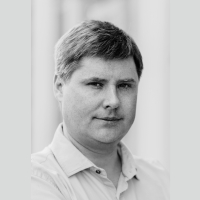
Dmitry Koshmin (Saint Petersburg)
Actor, teacher, director, honoured artist of the Chechen Republic, the associate Professor of the Department of Speech Training at Russian State Institute of Performing Arts, prize winner of all-Russian competition of artists-reciters named after Pushkin.
He graduated from the Boris Shchukin Theatre Institute in 1997. 1998-2007-teacher of BSTI, Moscow Art Theatre School, GITIS, State Specialized Institute of Performing Arts, Moscow State Pedagogical University.
Since 2007, he has been teaching at RSIRA. In 2012-2017 - teacher of the Pushkin School Theatre, since 2013 - teacher of the Maly Drama Theatre (MDT) - Theatre of Europe, since 2019 - teacher of the Baltic House Theatre Festival
As a teacher, he participates in the program of support for Russian theatre abroad of the UTP of the Russian Federation, the educational program of the Baltic House Theatre Festival, and collaborates with the Academy of cinematographic and theatrical arts named after N. S. Mikhalkov.
He conducts master classes in theatres of Russia, CIS and Baltic countries (Uzbekistan, Ukraine, Armenia, Kazakhstan, Tajikistan, Lithuania, Kyrgyzstan, Belarus, Latvia, Estonia, Transnistria, Moldova), as well as in theatres and theatre schools in foreign countries (Spain, Romania, South Korea).
Goal:
Overview of the main sections of "Speech training" with the possibility to use currently known information technologies.
Process:
Speech training: voice leading, diction, articulation, breathing, rhythm, etc. Creative tasks based on world classics. Discussion and experimental study of new trends and methods of speech training in the context of digitalization of education.
How to conduct classes on speech technique in the format of a video tutorial in "Zoom", on "Skype" or using another messenger? Do voice recording and video recordings on diction exercises, breathing exercises, and voice exercises help or disturb? How to control the correctness and accuracy of tasks from the teacher and how to correctly perceive and repeat the exercises to students? Is it possible for a teacher (director) to choose material for creative work while being with a student (actor) in different classroom and how to implement work on this material remotely?
Result: Online show of independent works
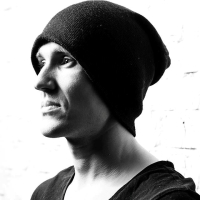
Alexander Andriyashkin (Moscow)
Movement artist, teacher, choreographer, director. Participant of international laboratories dedicated to the collaboration of theatre and dance (Jacob's Pillow, USA), interaction of choreographers and composers (DanceStation, Sweden), interaction of voice and movement (Siwic, Switzerland), the program "Accumulation of knowledge and insights in the stage manner" (Tanzquartier, Austria).
Teacher of contemporary dance at the school of modern dance "Tsekh", performance at Moscow Art Theatre School.
As a choreographer, he collaborated with such theatres as "July Assembly", "Ballet Moscow", "Brusnikin's Workshop", the Mayakovsky Theatre, the Pushkin Theatre, "Sovremennik", "Satyricon", and the Yermolova Theatre, "New Ballet", "Тheatre.doc", the Taganka Theatre, the Theatre of Nations, the Electric Theatre “Stanislavsky”, etc.
Winner of the national theatre Award "Golden Mask" -2017 for the production of the play “The Marusya" (“Dialogue Dance” company).
Goal:
Insight into the basic concepts, principles and tools of movement performative practices.
Process:
What do we face before roles, plot, and objects are created? How and what we can refine in a built-up role in terms of body, attention, anatomy, and presence. The body is a good and accurate marker. By tracking something or mastering a skill in the body, we automatically influence our mindsets, processes, reactions, and add-ons.
We will work with "simple" tasks and exercises to observe ourselves on a physical level in relation to such basic questions and concepts as physicality, communication, form, group interaction, psychophysics, etc.
Despite the forced theorizing, most of the classes will be devoted to practice and specifics.
Result:
Learn to listen to the body, recognize its signs. To be aware of movement as a way of understanding and immersion in artistic reality.
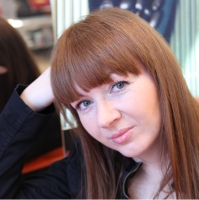
Agnieszka Lubomira Piotrowska (Poland)
Translator of Russian literature, curator of theatre projects, representative of Ivan Vyrypaev and Nikolay Kolyada in Poland.
She worked as an editor of the department of Slavic literature in the magazine "Literaturana Świecie" [Foreign literature] in Warsaw; artistic director of the International Theatre Festival "Demo-Ludy" in Olsztyn; curator of the International Theatre Festival "Konfrontacje" in Lublin; curator of the Festival of modern Russian theatre " Yes! Yes! Yes! " in Warsaw (collaborated with the Golden Mask Festival).
Member of the Adam Mickiewicz Institute in Warsaw, curator of the theatre program of the Season of Polish culture in Russia.
Member of the award panel of the International Theatre Festival Kolyada Plays (Yekaterinburg), the International Theatre Festival TEXTURA (Perm), the literary award NOS (Novaya Slovesnost – New Language Acquisition)
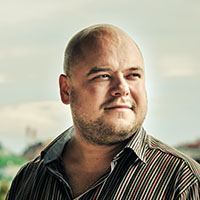
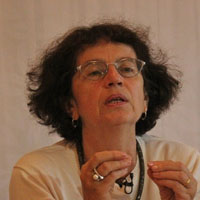
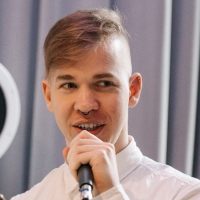
Oleg Sokolov (Moscow)
Head of the marketing department of the Meyerhold Centre (Moscow). He graduated from the social and psychological faculty of Ivanovo State University (IVSU) and the cultural faculty of Ivanovo State University of Chemical Technology (ISUCT).
Goal:
We will discuss the specifics of promoting national theatres and important aspects of promoting performances in national languages in Russia.
Process:
In terms of the lectures, special attention will be paid to the world practice of promotion, the structure of marketing and the relevance of the promoted product. The topic cannot be unambiguous and universal, so the course will consider different approaches and diametrically opposite points of view.
Result: Application of the acquired knowledge and advanced solutions in the theatre’s marketing programs.
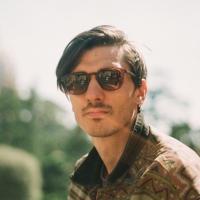
Eduard Karyakin (Saint Petersburg)
Head of the communications agency "Essence of media", teacher of the course" Social media in culture" at the RSUPA, editor-in-chief of social networks of the Shostakovich Philharmonic.
Goal:
Help the participant develop a pedagogical work principle in the community that will help attract people to it with its own content. By telling the truth about it, and not creating an abstract impression. Instead of entering the theatre community because it launched a cool meme and created a temporary interest, people will go to the theatre because it is beautiful and has an eternal interest.
Process:
Theoretical introduction to pedagogical communication and workshops with community analysis.
Communities are created either on an arbitrary principle, or by finding an abstract concept for it. For example, our theatre is about freedom and love, so let's broadcast such content in our social media. As a result, the community suffers because such content does not correspond to the subject — the idea of this theatre.
This is similar to classic marketing — we can tell anything; the priority is to attract a viewer and sell a ticket. This approach takes into account only the need to sell, so it only affects emotions or conscience.
This method is not suitable for culture as an activity: philharmonic halls, theatres, museums, because its task is not to sell, but to develop spiritual growth of a person. He unconsciously goes there for it, and quite consciously can wait for it, and gets either conscious or unconscious sales. In this way, the person keeps away from the subject of the institution or project itself, and sometimes from the art itself, which is not very intelligible, confusing marketing and communication.
Result: Participants will be able to redesign their social media so to make any people follow them and never take them away.
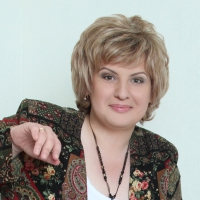
Natalya Kalenskaya (Kazan)
Doctor of Economics, Professor of Kazan Federal University.
Goal:
Review of cases and experience of a branding style and its positioning with regard to verbal and non-verbal identifiers.
Process:
The following will be reviewed and analysed:
- methods of leading Russian brand research agencies;
- typical errors in a branding style;
- brand consumer values;
- customer and consumer experience.
Result: Learn to identify criteria for brand capital based on customer and consumer experience. Learn to implement the basic principles of modern brand management.
